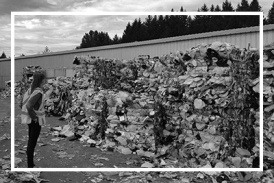Legal Claim Assistant Notes Impact of Whistleblower Disclosures in Ongoing PFAS Investigations
Whistleblower documents have contributed to PFAS litigation and policy reviews—Legal Claim Assistant shares legal resources for affected communities.
PFAS (per- and polyfluoroalkyl substances) are a group of synthetic chemicals used in industrial and consumer products. Their persistence in the environment and potential health effects have become the focus of federal and state-level policy, scientific research, and legal proceedings.
“Information brought forward through whistleblower reports has been referenced in multiple court cases and policy discussions,” says Sarah Miller, Legal Assistant at Legal Claim Assistant. “These documents help clarify the timeline of PFAS-related awareness within parts of the chemical industry.”
Whistleblower Contributions in Legal Context
Court filings and investigations have cited internal communications from chemical manufacturers regarding PFAS stability in the human body, toxicity studies commissioned internally, and environmental discharge records. Publicly available sources, including EPA enforcement actions and congressional hearing transcripts, have referenced such disclosures in the context of litigation or regulatory evaluation.
One example includes documents submitted as part of multi-district PFAS litigation, which detail discussions on PFAS persistence and environmental impact. These documents, now public, have helped inform regulatory review and settlement negotiations.
Relevance to Affected Communities
Whistleblower-provided information has contributed to early environmental testing in certain communities and influenced PFAS monitoring programs. Legal Claim Assistant encourages residents living near industrial facilities or manufacturing plants with known PFAS use to remain informed about exposure pathways.
“Individuals who lived near PFAS-producing sites may benefit from understanding how historical disclosures have shaped current public health responses,” Miller adds.
Legal Support Available
Legal Claim Assistant offers free case evaluations for individuals who believe they may have experienced health effects related to PFAS exposure. The organization connects users with law firms experienced in environmental contamination and toxic tort litigation.
About Legal Claim Assistant
Legal Claim Assistant is a nationwide legal referral service connecting individuals impacted by hazardous chemicals and environmental exposure with experienced attorneys. The organization provides resources and case evaluations to help individuals understand their legal options.
Protection Tax Helps Clients Resolve Unfiled Returns Before IRS Action Escalates
leagend T31 Sets New Standard for Affordable and Accurate OBD II Diagnostics
Couple Opens Unique '432Hz' Live Music Sanctuary on Spain's Costa del Sol for Summer Vibes and Son Awareness
Kalendarium
Więcej ważnych informacji
 Jedynka Newserii
Jedynka Newserii

 Jedynka Newserii
Jedynka Newserii

Handel

Ze względu na różnice w cenach surowce wtórne przegrywają z pierwotnymi. To powoduje problemy branży recyklingowej
Rozporządzenie PPWR stawia ambitne cele w zakresie wykorzystania recyklatów w poszczególnych rodzajach opakowań. To będzie oznaczało wzrost popytu na materiały wtórne pochodzące z recyklingu. Obecnie problemy branży recyklingu mogą spowodować, że popyt będzie zaspokajany głównie przez import. Dziś do dobrowolnego wykorzystania recyklatów nie zachęcają przede wszystkim ceny – surowiec pierwotny można kupić taniej niż ten z recyklingu.
Przemysł spożywczy
Rośnie presja konkurencyjna na unijne rolnictwo. Bez rekompensat sytuacja rolników może się pogarszać

Rolnictwo i żywność, w tym rybołówstwo, są sektorami strategicznymi dla UE. System rolno-spożywczy, oparty na jednolitym rynku europejskim, wytwarza ponad 900 mld euro wartości dodanej. Jego konkurencyjność stoi jednak przed wieloma wyzwaniami – to przede wszystkim eksport z Ukrainy i niedługo także z krajów Mercosur, a także presja związana z oczekiwaniami konsumentów i Zielonym Ładem. Bez rekompensat rolnikom może być trudno tym wyzwaniom sprostać.
Transport
Infrastruktury ładowania elektryków przybywa w szybkim tempie. Inwestorzy jednak napotykają szereg barier

Liczba punktów ładowania samochodów elektrycznych wynosi dziś ok. 10 tys., a tempo wzrostu wynosi ok. 50 proc. r/r. Dynamika ta przez wiele miesięcy była wyższa niż wyniki samego rynku samochodów elektrycznych, na które w poprzednim roku wpływało zawieszenie rządowych dopłat do zakupu elektryka. Pierwszy kwartał br. zamknął się 22-proc. wzrostem liczby rejestracji w ujęciu rocznym, ale kwiecień przyniósł już wyraźne odbicie – o 100 proc.
Partner serwisu
Szkolenia

Akademia Newserii
Akademia Newserii to projekt, w ramach którego najlepsi polscy dziennikarze biznesowi, giełdowi oraz lifestylowi, a także szkoleniowcy z wieloletnim doświadczeniem dzielą się swoją wiedzą nt. pracy z mediami.








.gif)

 |
| |
| |
|